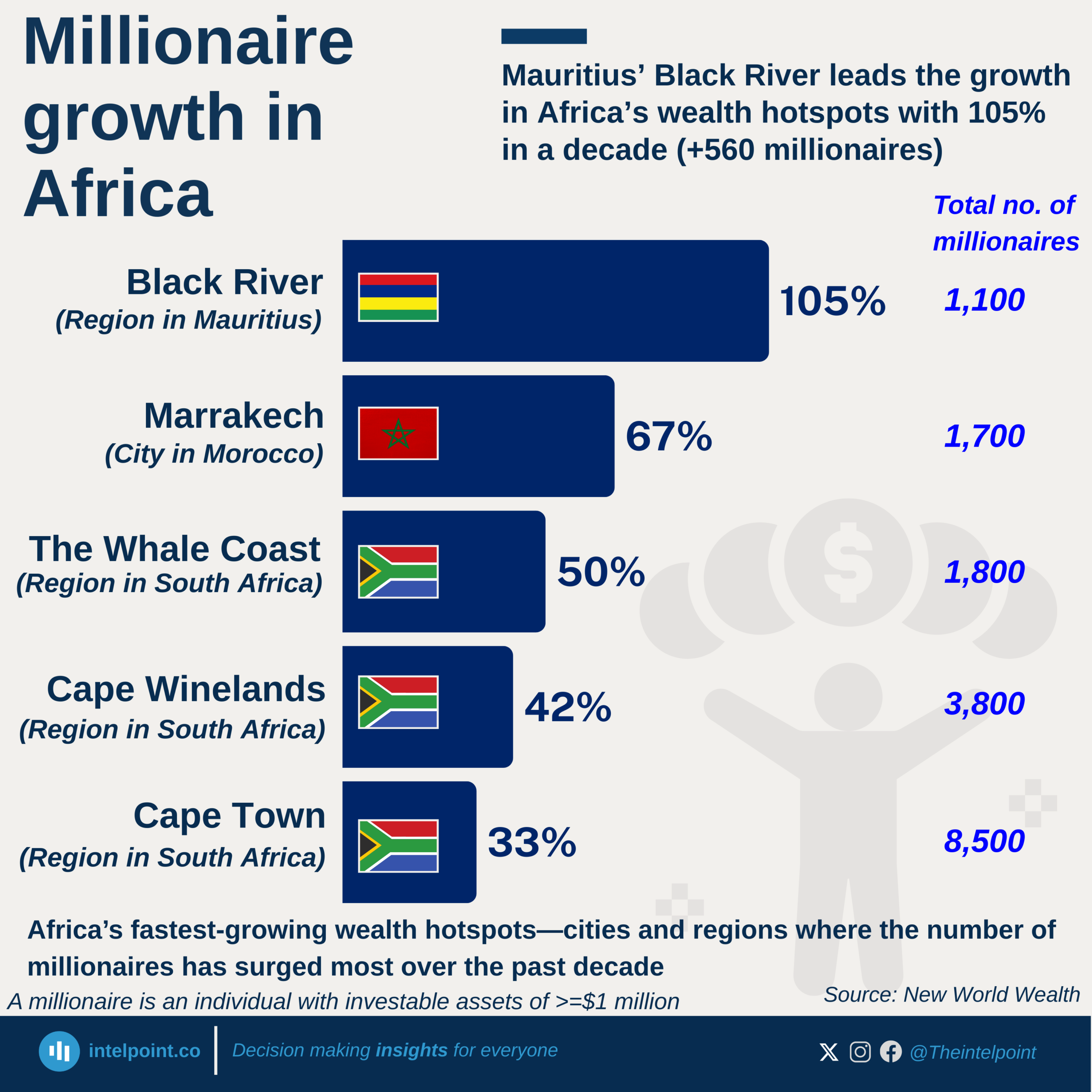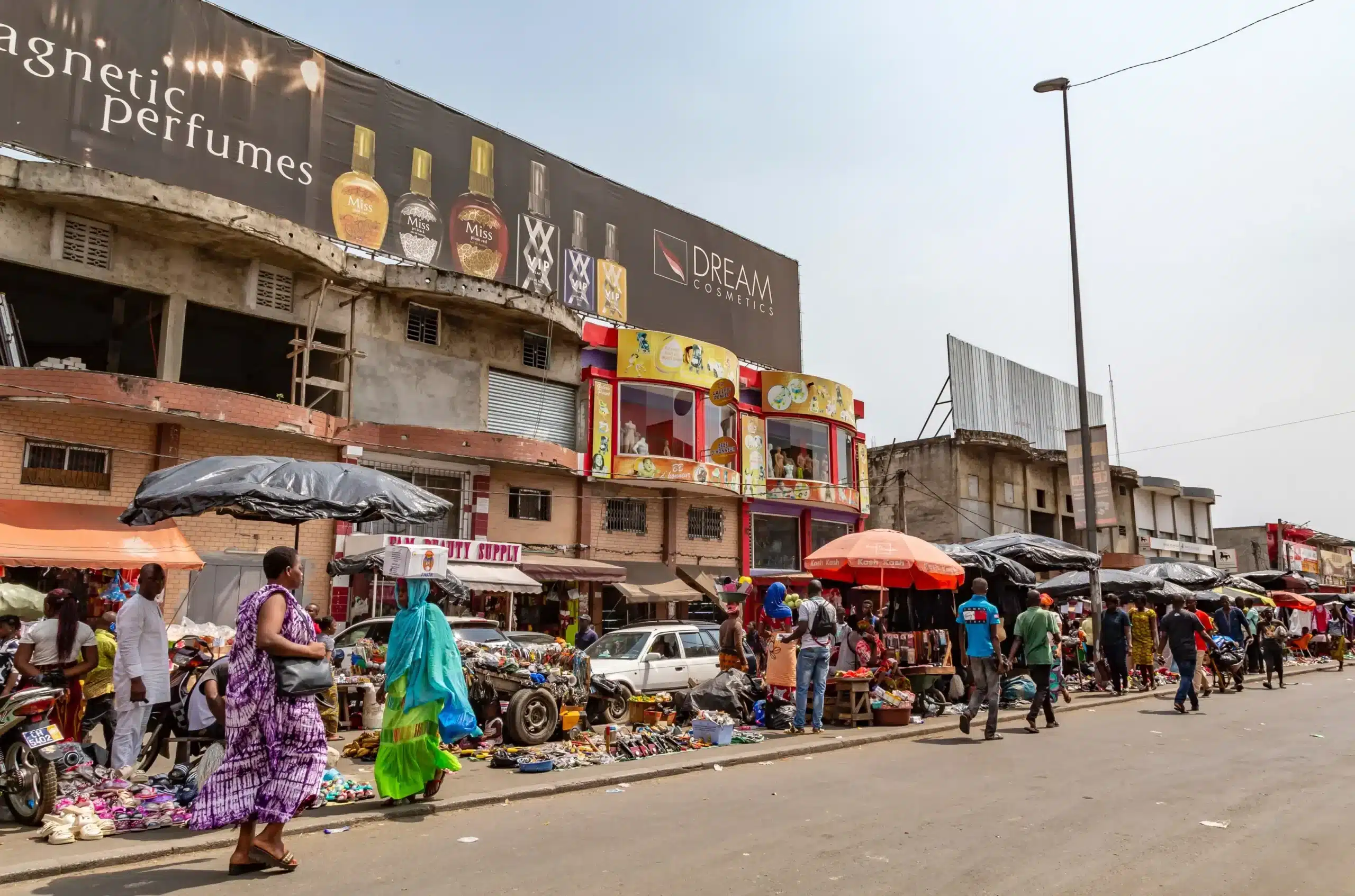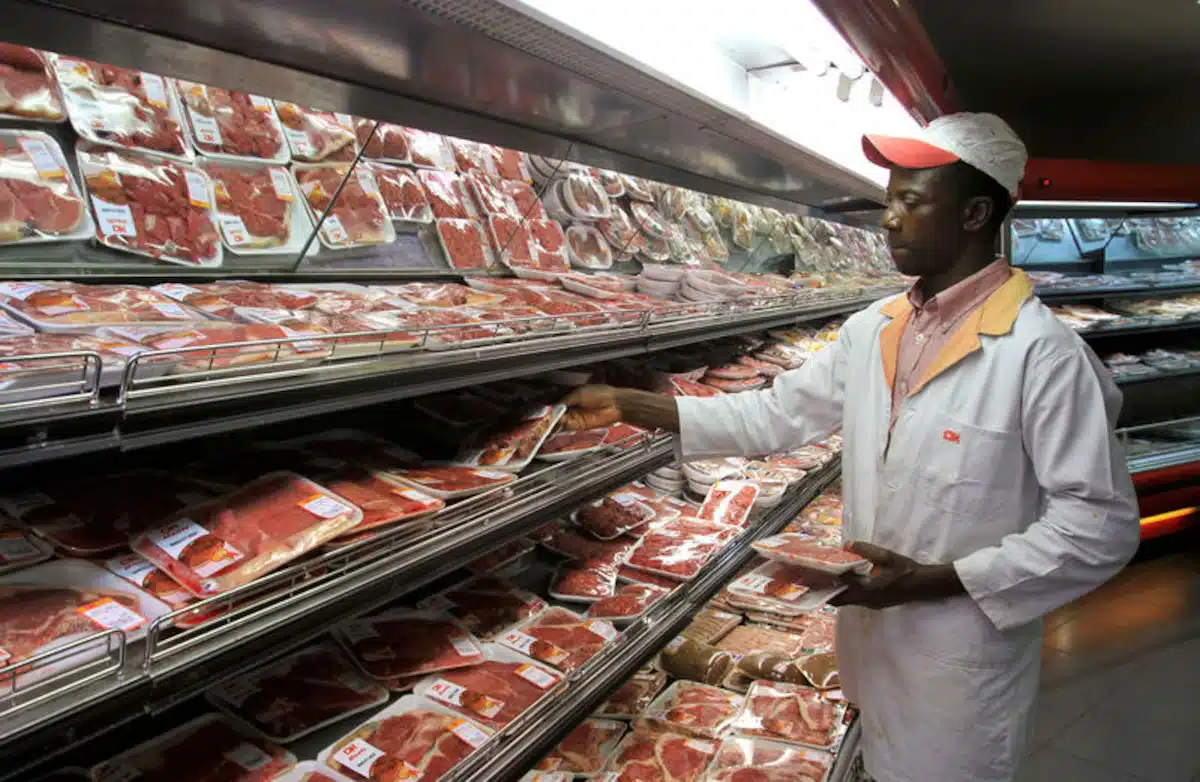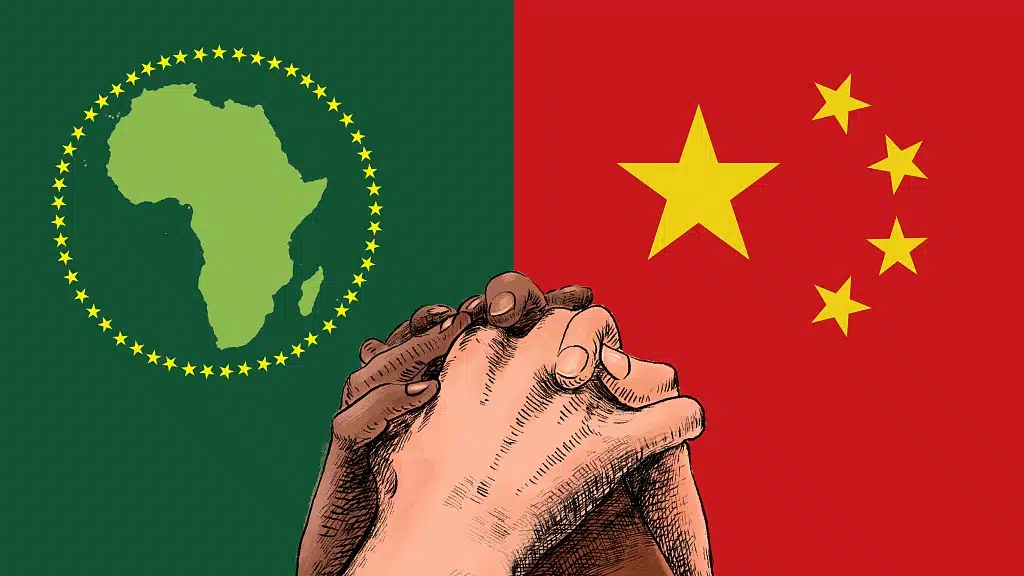Africa is fast emerging as a magnet for wealth, with a new wave of millionaires flocking to dynamic cities and regions across the continent. From booming financial hubs to lifestyle-rich coastal retreats, these destinations are redefining where the wealthy choose to live, invest, and build fortunes.
According to the 2025 Africa Wealth Report, released on Tuesday, five cities and regions across the continent have attracted 16,900 millionaires over the past decade, driven largely by lifestyle, education, and investment opportunities.
The report — in its fourth edition, published by international advisory firm Henley & Partners in collaboration with global wealth intelligence partner New World Wealth — highlights that the Black River district in Mauritius tops the list, recording 105% millionaire growth to 1,100 as of June 2025, from 2014. High-Net-Worth Individuals (HNWIs) are defined as those with more than $1 million in liquid assets.
Marrakech, Morocco ranks second, with a 67% rise to 1,700 millionaires, followed by South Africa’s Whale Coast with 50% growth to 1,800. Other top destinations include the Cape Winelands region (42%), encompassing Stellenbosch, Franschhoek, and Paarl — which continues to attract wealthy retirees and second-home buyers — and Cape Town (33%), rounding out the top five.
“The increase in Africa’s millionaire population will likely be led by lifestyle destinations such as the Whale Coast, Cape Winelands, and Marrakech,” said Andrew Amoils, Head of Research at New World Wealth.
Amoils noted that key industries driving this wealth include fintech, eco-tourism, software development, green tech, e-commerce, rare metals mining, healthcare, biotech, media, entertainment, and wealth management.
He added that as the European Union and the United Kingdom become less attractive to global investors, Africa has potential to emerge as a preferred destination for wealthy entrepreneurs. “There are already signs of this happening, with Morocco, Mauritius, Namibia, and Seychelles all projected to see big wealth inflows this year.”
South Africa accounts for a third of Africa’s millionaires
South Africa now represents 34% of Africa’s millionaire population — roughly equal to the next five wealthiest countries combined. With 41,100 millionaires, it leads Africa’s “Big Five” wealth markets of Egypt (14,800), Morocco (7,500), Nigeria (7,200), and Kenya (6,800). Together, these five countries account for 63% of the continent’s millionaires and 88% of its billionaires.
Mauritius, ranked sixth, has recorded the continent’s strongest HNWI growth over the past decade at 63%, driven by political stability, tax efficiency, and a robust residence-by-investment program. Rwanda (48%) and Morocco (40%) also posted strong gains, while Nigeria’s millionaire population contracted by 47%, alongside Angola (36%) and Algeria (23%).
At the city level, Johannesburg remains Africa’s wealthiest, home to 11,700 millionaires, anchored by Sandton’s financial district and luxury enclaves in Waterfall–Midrand. Cape Town follows with 8,500 millionaires and leads in centi-millionaires (35), boasting Africa’s priciest prime real estate at $5,800 per square meter. Analysts project Cape Town will surpass Johannesburg in total wealth by 2030.
Cairo, with 6,800 millionaires, ranks third and hosts the highest number of African billionaires (five). Nairobi places fourth with 4,200 millionaires, nearly half of Kenya’s total wealth base.
“Africa’s story remains one of dualities — resilience and promise, but also deep political fractures and governance setbacks,” said Justice Malala, Political Analyst. “If leadership can harness economic growth while tackling dysfunction, the continent could turn this paradox into transformation.”
Jean Fabri, Henley & Partners’ Chief Economist, added: “The rise in Africa’s millionaire class is both a signal and a test. It signals that wealth is being created and retained, but it tests the continent’s ability to turn private wealth into broad-based transformation.”
Africa’s mobility gap widens
The wealth report warns that Africa’s growing wealth is offset by worsening global mobility restrictions. Measures under US President Donald Trump — including steep tariffs, USAID cuts, and deportations — are reshaping Africa’s external environment.
A planned expansion of US travel bans could bar up to two-thirds of African countries from entry, making it one of the most sweeping restrictions in modern history.
Visa inequality also persists in Europe. Exclusive research published in Henley’s Global Mobility Report shows systemic discrimination: globally, one in six Schengen visa applications is rejected, but for Africans, the rate is one in two — more than double the rejection rate a decade ago.
The Henley Passport Power Index shows this lack of travel freedom curtails access to global markets, talent, and capital. In response, wealthy Africans are pursuing “global positioning” strategies — acquiring alternative residencies and citizenships to expand business reach, secure education opportunities, and protect family wealth.
Henley reports applications from African investors doubled between 2020 and 2024, with South Africa and Egypt now among the world’s top 10 source markets.
Popular destinations include Portugal’s Golden Visa program, Caribbean citizenships in Grenada and Antigua & Barbuda, and Latvia’s Residence by Investment Program. On the inbound side, Egypt, Mauritius, and São Tomé and Príncipe are actively using investment migration to attract foreign capital.
São Tomé, for instance, channels inflows from its $90,000 residency program into renewable energy projects powering the country.
“These investors are not turning their backs on Africa — they are expanding its footprint globally,” said Grace Arthur from Henley & Partners Ghana.
Africa’s millionaire population set to soar
Looking ahead, Henley projects Africa’s millionaire population will expand by 65% over the next decade. The continent currently hosts 25 billionaires, 348 centi-millionaires, and 122,500 millionaires — a remarkable transformation compared with the late 20th century, when African economies were largely stagnant.
Sub-Saharan Africa’s economy is forecast to grow 3.7% in 2025, outpacing Europe (0.7%) and the U.S. (1.4%), with growth rising to 4.1% in 2026.
“Africa’s sustained expansion and wealth growth position it as a key player in the global wealth landscape,” said Dominic Volek, Group Head of Private Clients at Henley & Partners.
“Investment migration is now working both ways: African investors are diversifying globally, while international investors are looking at Africa as a stable destination for long-term capital deployment.”












